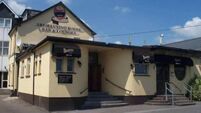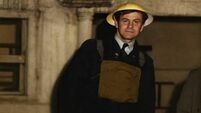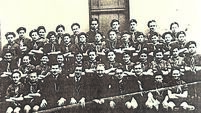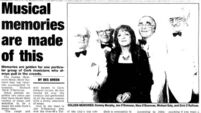Postmaster shot dead near Clonakilty, and bid to blow up bridge near Blarney

What was in the news 100 years ago today?
THE postman from Clonakilty entered the sub-post office at Darrara, about four miles from the town, and found the postmaster, Jerome O’Reilly, dead yesterday morning, the Echo reported 100 years ago today, on Saturday, January 27, 1923.
Deceased was a young man much respected in the district. His mother, an aged woman, was the only other occupant of the house.
An attempt was made at about 3am to blow up Willison’s Bridge between Blarney and Tower.
Beyond some damage to the walls on either side, the bridge is intact and still usable by vehicular and pedestrian traffic. The explosion was so enormous that it was plainly heard in the city.
Before midnight last night, the military guards stationed at Upton and Innishannon on the Cork and Bandon railway line were attacked. Heavy firing continued for more than an hour, but no significant damage was caused and there were no casualties.
Cork’s two policing bodies, the Civic Guard and the Cork Civic Patrol, are busy moving from the School of Music on Union Quay to their new quarters across the river on Morrison’s Island.
The School of Music had been commandeered and is being returned to its representatives.
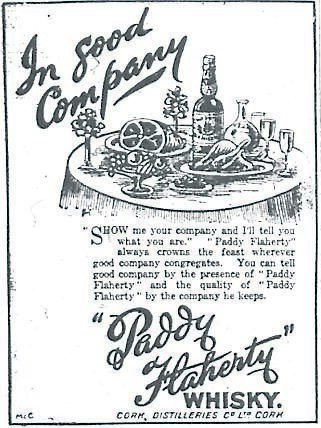
The mystery ship Duchess anchored at Youghal last night with an armed guard on board. To-day, additional troops boarded and after weighing anchor she steamed up the Blackwater with a cargo destined for Cappoquin.
The strike by flour milling operatives continues. There is, so far, no prospect of negotiations being opened up.
In relation to the dockers strike, employers met this morning at their rooms on the South Mall. The dockers weren’t represented. Both sides report that no progress has been made towards a settlement.
At the Cork Corporation meeting last night, D. Barry said the country was going through terrible times and starvation was facing some people.
He moved that the Corporation appoint a deputation to foster a settlement.
Simon Daly seconded this. J. Kelleher said Sir John Scott had shown a good example by calling his men in. If the other merchants followed, there would be contentment in Cork.
The reduction in wages the employers were trying to force would not benefit the consumer but the merchants themselves. The only way was to ask the merchants to follow Sir John’s lead (applause form the gallery).
Sir John said notice should always be given so sides have the opportunity to discuss and prevent strike and the suffering it causes. Mr Egan said Sir John had made a hero of himself. Sir John replied “spare my blushes”.
Robert Day said the reduction in labour costs on a 500 ton cargo of coal would be £1 1s 8d, about a halfpenny in the ton. That benefit would not go to the people. The dockers were out on a matter of principle and would fight it. The following deputation was appointed: Deputy Lord Mayor, Sean Nolan, M. Egan, D. Barry and M.J. O’Riordan.
Coroner Horgan held an inquest at Douglas this morning on the body of an infant found in the churchyard the day before yesterday.
Daniel Kiely, cemetery caretaker, said he noticed a spot of freshly dug earth from which part of a box protruded. He took it up and found it contained the body of a baby wrapped in flannel.
Dr James Lynch deposed that the child was stillborn and had not reached maturity.
It is in excess of a dozen years since John McCormack sang in Dublin or Cork! No wonder Dublin’s Theatre Royal was so crowded over the past week.
Long lanes of Daimlers and Rolls-Royces lined approaches to the theatre. McCormack once again captivated all with the magic of his voice. Experts profess to hearing improved phrasing and marvellous breath control.
The Maestro’s surpassing art today springs from the same tap roots as when he won his first Feis Ceoil Medal - a singularly pellucid voice, perfect articulation and superb talent in interpreting the spirit of a song.
Those expecting increased voice volume and long sustained thrilling top notes á la Caruso went away disappointed. McCormack sang The Snowy Breasted Pearl (Pearla an brollagh bhan) with all his old brilliancy. Of all his songs, this, his first masterpiece, goes most directly and deeply into the souls of his audience.
